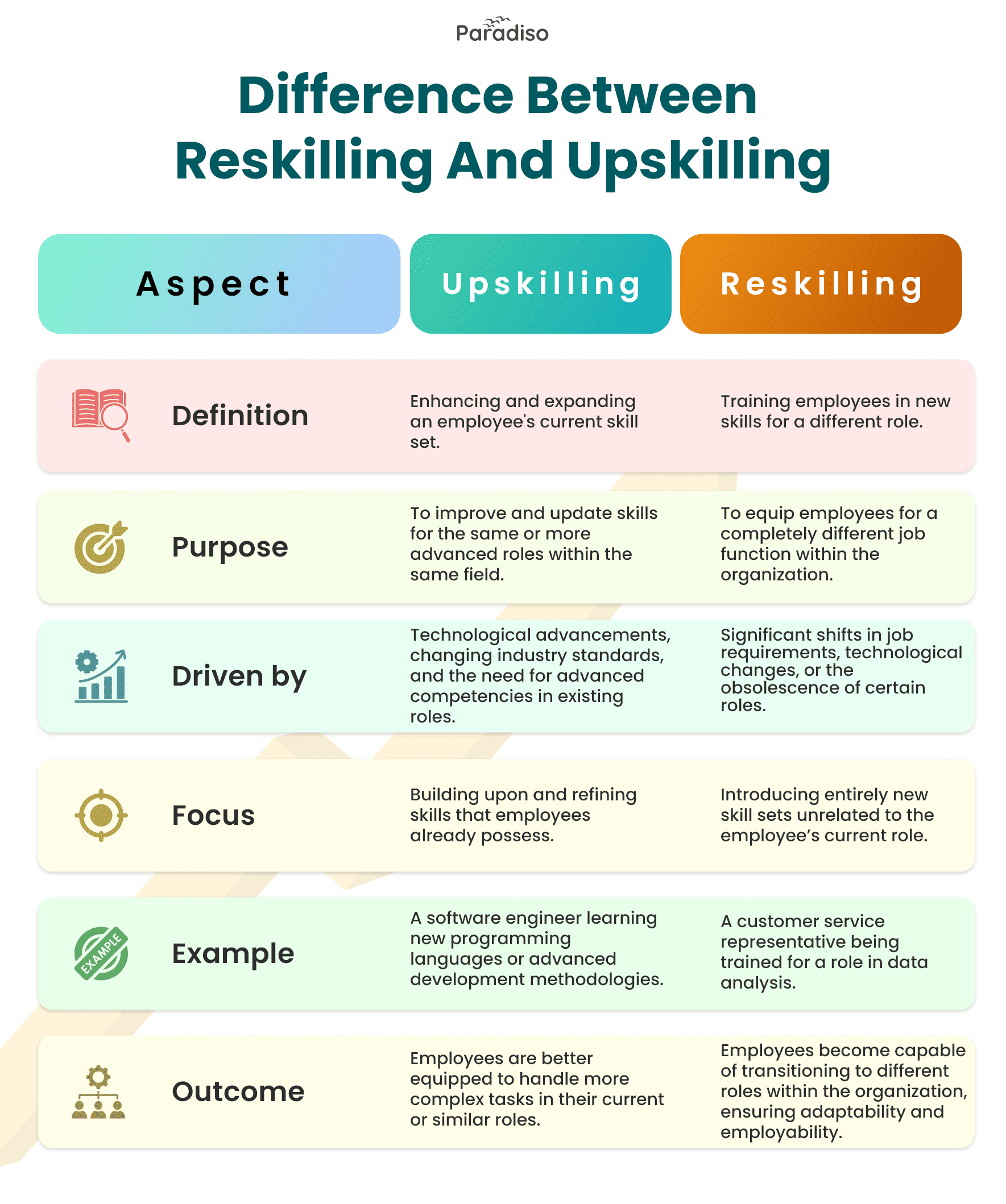The Importance of Reskilling and Upskilling in Today’s Workforce
The importance of upskilling and reskilling in the modern workforce has become more pronounced than ever, playing a vital role in meeting both immediate operational needs and long-term strategic goals. With industries rapidly transforming, investing in workforce development through structured learning initiatives is key to staying competitive and resilient.
1. Adapting to Technological Advancements
In a digital-first world, where automation, AI, and emerging technologies are reshaping job roles, upskilling and reskilling programs help employees remain proficient with the latest tools and platforms. Leveraging a powerful Learning Management System (LMS) enables seamless delivery of technology-focused training and ensures digital fluency across teams.
2. Closing Skill Gaps
As job functions evolve, organizations face a growing skills gap. Effective corporate training through reskilling and upskilling ensures the workforce remains capable, agile, and aligned with the changing demands of their roles. This approach strengthens both individual performance and business outcomes.
3. Enhancing Employee Engagement and Retention
One of the most underrated benefits of reskilling and upskilling is its impact on employee morale. Offering career development opportunities makes employees feel valued, leading to greater engagement, loyalty, and reduced turnover. A personalized learning experience through an LMS can further enhance satisfaction.
4. Fostering a Culture of Continuous Learning
By integrating upskilling and reskilling strategies into the organization’s learning culture, companies create an environment of continuous improvement. This learning-first mindset boosts innovation, encourages self-directed growth, and empowers employees to proactively meet future demands.
5. Increasing Operational Efficiency
Well-trained employees are more productive, adaptable, and capable of executing tasks with precision. Ongoing professional development through LMS-powered training modules helps improve internal processes, optimize resources, and drive operational efficiency.
6. Ensuring Organizational Agility
Business landscapes are increasingly volatile. Reskilling and upskilling the workforce ensures organizations can respond quickly to disruptions and pivot strategies effectively. Agile companies with versatile teams are better positioned to handle unforeseen challenges and seize new opportunities.
7. Attracting and Retaining Top Talent
Organizations that are committed to employee development are more attractive to high-performing professionals who value career growth. Publicly promoting your upskilling initiatives can position your company as a talent magnet in a competitive hiring market.
8. Future-Proofing the Organization
Investing in future-ready skills through structured learning and development programs ensures your business remains relevant in the face of industry transformation. Upskilling and reskilling employees is no longer optional—it’s a strategic imperative for long-term sustainability.
















